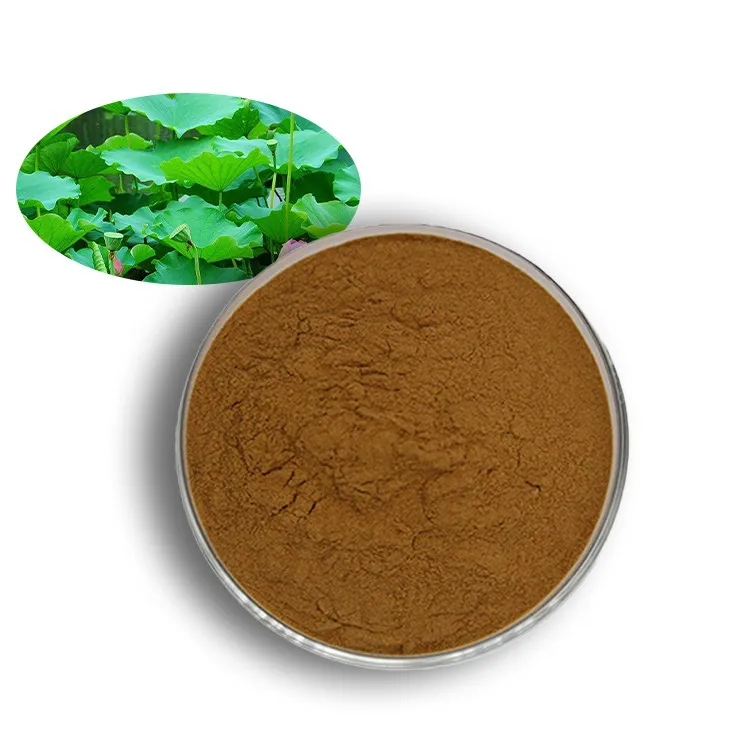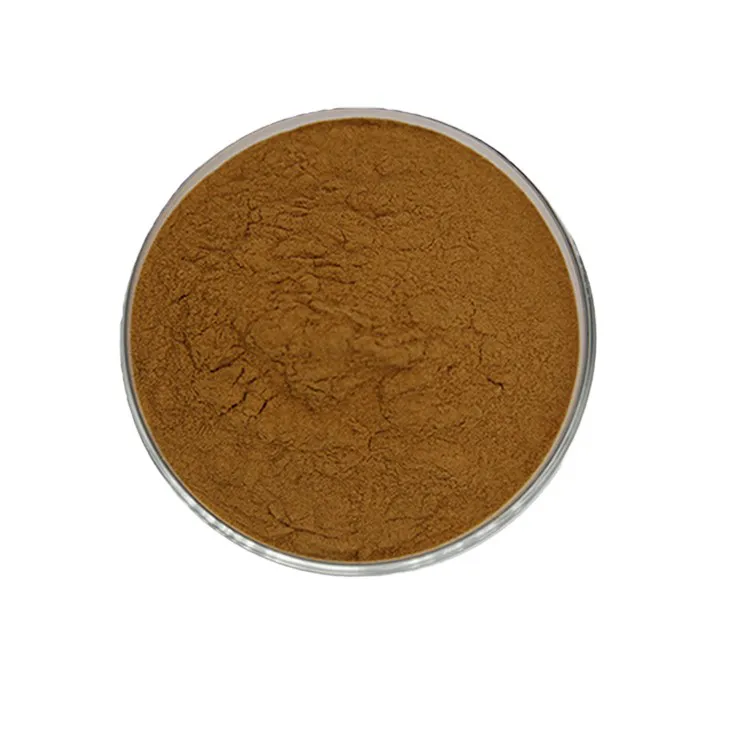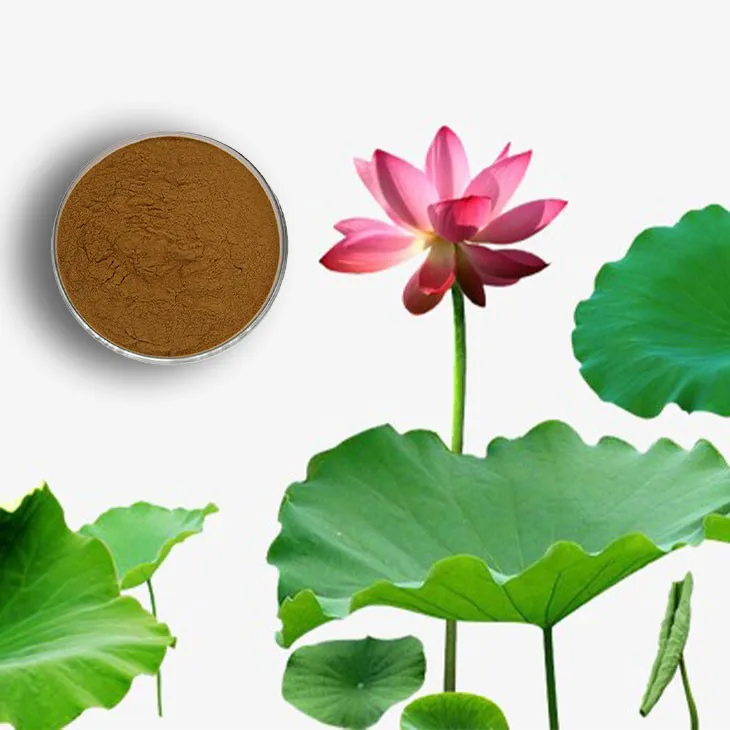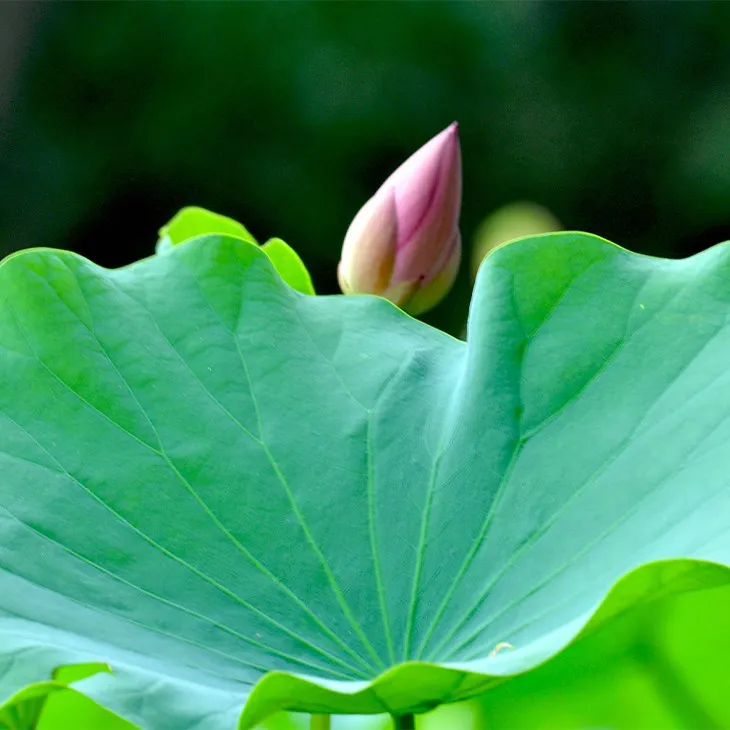- 0086-571-85302990
- sales@greenskybio.com
5 Amazing Things Made from Lotus Leaf Extract.
2024-11-11

1. Introduction to Lotus leaf extract
The lotus leaf has been a symbol of purity and beauty in many cultures for centuries. However, in recent years, scientific research has turned its attention to the extract of the lotus leaf for its numerous potential applications. Lotus leaf extract is rich in various bioactive compounds, such as flavonoids, alkaloids, and phenolic acids. These compounds are responsible for many of its remarkable properties.

2. Skincare: The Antioxidant Powerhouse
Antioxidant Properties
In the world of skincare, Lotus leaf extract has emerged as a significant ingredient due to its antioxidant
capabilities. Antioxidants play a crucial role in protecting the skin from free radicals. Free radicals are
unstable molecules that can cause damage to skin cells, leading to premature aging, wrinkles, and dullness.
The flavonoids present in lotus leaf extract are potent antioxidants that can neutralize these free radicals,
thus preventing or reducing the signs of aging.
Anti - inflammatory Effects
Another benefit of lotus leaf extract in skincare is its anti - inflammatory properties. Skin inflammation can
be caused by various factors such as environmental pollutants, allergens, or even internal hormonal changes.
The phenolic acids in the extract help to soothe inflamed skin, reducing redness and irritation. This makes it
suitable for use in products for sensitive skin types.
Oil Control and Pore Minimization
Lotus leaf extract also has properties that can regulate sebum production in the skin. Excessive sebum can lead
to oily skin and clogged pores, which are often associated with acne breakouts. By controlling sebum
production, the extract can help to keep the skin's oil - water balance in check. Additionally, it can also
contribute to minimizing the appearance of pores, resulting in a smoother complexion.

3. Traditional Medicine: Health Benefits
Digestive Health
In traditional medicine, lotus leaf extract has been used for its potential benefits to digestive health. It is
believed to have a mild laxative effect, which can help to relieve constipation. The alkaloids in the extract
may stimulate the peristaltic movement of the intestines, promoting the regular passage of stools.
Blood Sugar Regulation
Some studies suggest that lotus leaf extract may play a role in regulating blood sugar levels. It may enhance
insulin sensitivity, allowing cells to more effectively take up glucose from the bloodstream. This could be
beneficial for individuals with diabetes or those at risk of developing the condition.
Cardiovascular Health
The antioxidant and anti - inflammatory properties of lotus leaf extract also extend to cardiovascular health.
By reducing oxidative stress and inflammation in the blood vessels, it may help to lower the risk of
developing heart disease. It may also contribute to reducing blood pressure and improving blood lipid
profiles.

4. Food Industry: A Natural Preservative
Antimicrobial Activity
In the food industry, lotus leaf extract is being explored as a natural preservative. It exhibits antimicrobial
activity against a range of bacteria, yeasts, and molds. This ability to inhibit the growth of microorganisms
can extend the shelf life of food products. For example, in some studies, it has been shown to be effective in
preventing the spoilage of fruits and vegetables.
Flavor and Aroma Enhancement
Besides its preservative properties, lotus leaf extract can also add a unique flavor and aroma to food. It has a
delicate, herbal note that can enhance the overall sensory experience of certain dishes. In some traditional
cuisines, lotus leaves are used to wrap food during cooking, not only imparting a pleasant flavor but also
protecting the food from direct heat.

5. Other Applications
Textile Industry
In the textile industry, lotus leaf - inspired coatings are being developed. These coatings are based on the
self - cleaning properties of the lotus leaf. The micro - and nano - structures on the surface of the lotus leaf
cause water and dirt to roll off easily. By mimicking these structures, textiles can be made to be more
stain - resistant and self - cleaning, reducing the need for frequent washing.
Environmental Applications
Lotus leaf extract may also have potential applications in environmental remediation. Its ability to adsorb
certain pollutants has been studied. For example, it may be able to remove heavy metals from water sources,
contributing to water purification.
6. Conclusion
Lotus leaf extract is a versatile and promising natural resource with a wide range of applications. From skincare to traditional medicine, food preservation to textile innovation and environmental protection, it offers numerous benefits. However, more research is still needed to fully understand its mechanisms of action and to optimize its applications. As consumers become more interested in natural and sustainable products, lotus leaf extract is likely to gain even more attention in the future.
FAQ:
Question 1: What are the antioxidant properties of lotus leaf extract in skincare?
Lotus leaf extract contains various bioactive compounds. In skincare, these antioxidant properties help combat free radicals, which are unstable molecules that can damage skin cells. The antioxidants in lotus leaf extract can prevent premature aging, reduce the appearance of wrinkles, and protect the skin from environmental stressors such as pollution and UV radiation.
Question 2: How is lotus leaf extract used in traditional medicine?
In traditional medicine, lotus leaf extract has been used for potential health benefits. It may be used to aid digestion, as it is believed to have properties that can soothe the digestive system. It has also been associated with promoting detoxification, potentially helping the body to eliminate toxins. Additionally, some traditional practices suggest that it can be used to relieve certain types of inflammation.
Question 3: Why is lotus leaf extract considered a natural preservative in the food industry?
Lotus leaf extract contains natural antimicrobial compounds. These substances can inhibit the growth of bacteria, fungi, and other microorganisms that cause food spoilage. As a natural preservative, it offers an alternative to synthetic preservatives, which may be of concern to some consumers due to potential health risks or negative impacts on taste.
Question 4: Are there any other applications of lotus leaf extract?
Yes, lotus leaf extract can also be used in the textile industry. It may be applied to fabrics to impart certain properties such as odor - resistance. In addition, in some cosmetic products other than skincare, like haircare products, it can be used for its conditioning and strengthening properties for hair.
Question 5: How is lotus leaf extract obtained?
Lotus leaf extract is typically obtained through a process of extraction. This may involve using solvents such as ethanol or water to extract the active compounds from the lotus leaves. The leaves are first collected, cleaned, and then subjected to the extraction process. After extraction, the solvent may be removed through evaporation or other techniques to obtain a concentrated extract.
Related literature
- The Antioxidant Activity of Lotus Leaf Extract in Cosmetics"
- "Lotus Leaf Extract in Traditional Medicine: A Review"
- "Natural Preservatives: The Role of Lotus Leaf Extract in the Food Industry"
- ▶ Hesperidin
- ▶ citrus bioflavonoids
- ▶ plant extract
- ▶ lycopene
- ▶ Diosmin
- ▶ Grape seed extract
- ▶ Sea buckthorn Juice Powder
- ▶ Beetroot powder
- ▶ Hops Extract
- ▶ Artichoke Extract
- ▶ Reishi mushroom extract
- ▶ Astaxanthin
- ▶ Green Tea Extract
- ▶ Curcumin Extract
- ▶ Horse Chestnut Extract
- ▶ Other Problems
- ▶ Boswellia Serrata Extract
- ▶ Resveratrol Extract
- ▶ Marigold Extract
- ▶ Grape Leaf Extract
- ▶ blog3
- ▶ blog4
- ▶ blog5
-
Organic Tongkat Ali extract powder factory.
2024-11-11
-
How to make powder with ashwagandha extract.
2024-11-11
-
Rosehip extract manufacturers from China.
2024-11-11
-
The best cat's claw extract in nature.
2024-11-11
-
Chinese Dandelion Leaf Extract Suppliers.
2024-11-11
-
Tongkat Ali Extract Powder
2024-11-11
-
Coconut Water Powder
2024-11-11
-
Phellodendron Extract
2024-11-11
-
Centella Asiatica Extract
2024-11-11
-
Curcumin Extract
2024-11-11
-
Dandelion Leaf Extract
2024-11-11
-
Acerola Extract
2024-11-11
-
Konjac Powder
2024-11-11
-
Hawthorn powder
2024-11-11
-
Sophora Flavescens Root Extract
2024-11-11





















